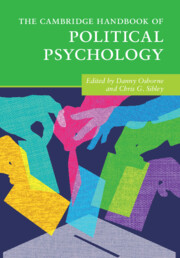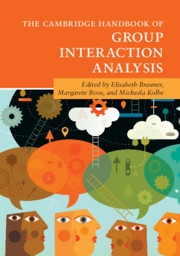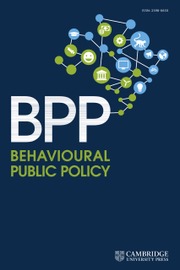The Cambridge Handbook of Political Psychology
The Cambridge Handbook of Political Psychology provides a comprehensive review of the psychology of political behaviour from an international perspective. Its coverage spans from foundational approaches to political psychology, including the evolutionary, personality and developmental roots of political attitudes, to contemporary challenges to governance, including populism, hate speech, conspiracy beliefs, inequality, climate change and cyberterrorism. Each chapter features cutting-edge research from internationally renowned scholars who offer their unique insights into how people think, feel and act in different political contexts. By taking a distinctively international approach, this handbook highlights the nuances of political behaviour across cultures and geographical regions, as well as the truisms of political psychology that transcend context. Academics, graduate students and practitioners alike, as well as those generally interested in politics and human behaviour, will benefit from this definitive overview of how people shape – and are shaped by – their political environment in a rapidly changing twenty-first century.
- Provides an overview of some of the most pressing issues facing democratic governance in contemporary society
- Looks beyond the North American context to feature international perspectives, thus broadening our understanding of how political psychology operates in different contexts
- Offers an up-to-date review of the literature, while also providing suggestions for future research
Reviews & endorsements
‘Danny Osborne and Chris Sibley have assembled what is arguably the most comprehensive, expansive, and engaging handbook concerning political psychology to be found anywhere in the literature. This handbook, which must be regarded as a tour de force, consists of major contributions from both ‘rising stars' and more senior scholars within the field of political psychology. This handbook is a must-read for anyone desiring to deepen their insights into the dynamics of human political behavior.' Jim Sidanius, Harvard University, USA
‘We live at a moment in history where political information (and misinformation) can be disseminated at lightning speed, creating and polarizing partisans. Understanding political behavior, divides, and progress in this context is a fascinating and important task, but one that can be frustrating. It is here that this handbook comes in, distilling decades of research on political psychology in a comprehensive volume. Unifying fresh and established experts, this book sheds light on issues that are affecting us on the ground: populism, identity, conflict, and change. Consequently, it is an invaluable resource for those studying, or interested in, the psychology of political behavior.' Fiona Kate Barlow, The University of Queensland, Australia
Product details
February 2022Paperback
9781108747417
800 pages
244 × 170 × 37 mm
1.21kg
Available
Table of Contents
- Content
- Part I. Foundations of Political Psychology:
- 1. Political psychology: advancing an international perspective on the psychology of political behaviour
- 2. The evolutionary basis of political ideology
- 3. Genetic contributions to political phenomena
- 4. The psychology and neuroscience of partisanship
- 5. The personality basis of political preferences
- 6. The structure, prevalence, and nature of mass belief systems
- 7. The psychology of public opinion
- 8. Rational choice and information processing
- 9. Emotions and politics
- 10. The developmental science of politics: insights from the 2016 US Presidential Election
- Part II. The Politics of Intergroup Attitudes:
- 11. Authoritarianism: conceptualization, research, and new developments
- 12. A political psychology of ethnocentrism
- 13. Collective narcissism: how being narcissistic about your groups shapes politics, group processes and intergroup relations
- 14. Demographic change, White decline, and the changing nature of racial politics in election campaigns
- 15. Macro-diversity and intergroup attitudes
- 16. The persistence of gender in campaigns and elections
- 17. The politics of abortion, pregnancy, and motherhood
- 18. Religiosity and openness to authoritarian governance
- 19. The consequences of moral conviction in politics: more negative than positive?
- 20. The political psychology of national identity
- 21. The political dynamics of immigration opinion worldwide
- 22. International and individual differences in support for human rights
- Part III. Contemporary Challenges to Democracy:
- 23. The political psychology of inequality: why rising rates of economic inequality affect our health and democracy
- 24. How social class influences political choices
- 25. Fear and loathing in American politics: a review of affective polarization
- 26. Political extremism
- 27. The politics of hate: derogatory language in politics and intergroup relations
- 28. Populism
- 29. A cultural theory of autocracy-vs-democracy: on the psychological foundations of political regimes
- 30. Psychological theories meet the challenge of persuading and mobilizing voters
- 31. Collective action for social change: individual, group and contextual factors shaping collective action and its outcomes
- 32. Opinion formation and polarization in the news feed era: effects from digital, social, and mobile media
- 33. Conspiracy theory belief and conspiratorial thinking
- 34. Political psychology and the climate crisis
- 35. The political psychology of cyber-terrorism
- 36. Reconciliation in the aftermath of collective violence
- Part IV. Diversifying Perspectives in Political Psychology:
- 37. Political psychology in the Global South: collective memory, intergroup relations, ideology, and political participation
- 38. Political psychology in the Arab region: a commentary on navigating research in unstable contexts
- 39. Critical perspectives in political psychology
- 40. Rethinking group dynamics: the Cuban missile crisis revisited
- 41. Two sides of the same coin: a new look at differences and similarities across political ideology
- Index.








